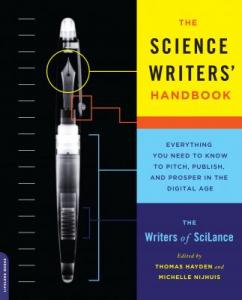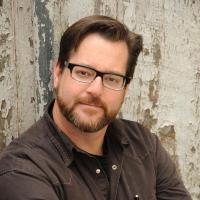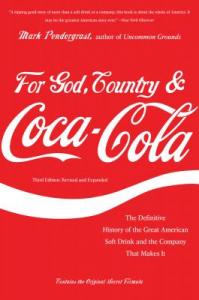SciLance: Science writing handbook; Pendergrast: A Coca-Cola history
EVERYTHING YOU NEED TO KNOW TO PITCH, PUBLISH,
AND PROSPER IN THE DIGITAL AGE
The Writers of SciLance
Thomas Hayden and Michelle Nijhuis, eds.
(Both editors and most contributors are NASW members.)
Da Capo Press/Lifelong Books. April 30, 2013. $17.50
ISBN: 978-0738216560
Contact info:
- Thomas Hayden, (650) 721-5722, sfhaydens@gmail.com, www.thomas-hayden.com, Twitter: mufferaw
- Michelle Nijhuis, (970) 527-3793, michelle@nasw.org, www.michellenijhuis.com, Twitter: nijhuism
- Publicist: Jenna Gilligan, (617) 252-5202, jenna.gilligan@perseusbooks.com
- Agent: Andrew Paulson, ZHS Literary, (646) 421-0219, apaulson@zshliterary.com
- Book website: pitchpublishprosper.com
- Blog url: pitchpublishprosper.com/the-blog/
- Book Twitter handle: sciwrihandbook
Buy this book now in the ScienceWriters bookstore.
This project was funded in part by an Ideas Grant from NASW. NASW members can look forward to a sneak peek inside the book later this month at the ScienceWriters (nasw.org) website.
Hayden writes:
When most of us in SciLance began our careers as science writers, whether five years ago or 15, there was a near-constant gloomy drumbeat that traditional science journalism was on the way out, to be replaced by some uncertain digital news world. Apps, iPhones, and tablet computers didn't exist. Now, some of us can scarcely imagine being a science writer without these tools.
As an online community of 35 science writers working in today’s changing markets and media, we've weathered a whole universe of new challenges and opportunities and lived to tell the story: that quality science journalism is indeed still here and thriving, even if it's produced, disseminated, liked, and shared in new, sometimes exotic ways.
Though many of us have staff experience at outlets large and small, we’re almost all freelancers now, most of us by choice. We work with digital technologies and platforms our field could not have anticipated a decade ago.
Maybe that’s why the whole group reacted with a collective of course! when one member, Anne Sasso, suggested we write a book together. For years, we had asked questions, shared experiences, and brainstormed solutions to the day-to-day challenges of science writing amongst ourselves.
We built up a substantial body of collective knowledge that we valued because it wasn’t available anywhere else. What better way to give back to this wild, wooly world of science writing, we thought, than to make that tribal knowledge available to anyone who wanted it. That’s what we’ve tried to do in The Science Writers’ Handbook.
Because our small group includes members at different career stages, we wanted to be sure that the advice, examples, and strategies we shared are relevant for students and seasoned pros; for freelancers and staffers; and for journalists, communicators, and working scientists.
We hope our book will earn its spot on your bookshelf next to NASW’s A Field Guide for Science Writers. Both editions of that book were important anchors for many of us as we were starting out.
Sure, we cover the nuts-and-bolts — how to find stories and report them, how to write more effective, engaging stories, and how to pitch ideas so that editors will assign them. But science writing isn’t just a craft: it’s a business and a lifestyle, too. That’s why we go deep into topics such as setting up a home office, figuring out taxes and business structures, and understanding and negotiating contracts. And we go further, telling how to balance the pressure of deadlines with the unpredictability of raising young children; how to convince your family and friends that your freelance career is a “real job;” and how to keep yourself growing and satisfied for the long haul.
If the experience of writing a book together has taught us anything, it’s that there’s always another great idea just around the corner. That’s why we’ve set up our book website as a hub for more advice, questions, and conversations. We hope you’ll read The Science Writers’ Handbook, and then visit us at pitchpublishprosper.com.
———————————
FOR GOD, COUNTRY AND COCA-COLA:
THE DEFINITIVE HISTORY OF THE GREAT AMERICAN SOFT DRINK
AND THE COMPANY THAT MAKES IT, 3rd ed.
Mark Pendergrast
Basic Books. May 2013. $21.99
ISBN: 978-0465029174
Contact info:
- Mark Pendergrast, (802) 497-1570, markp508@gmail.com, www.markpendergrast.com
- Publicist: Rachel Kieffer, (212) 340-8107, Rachel.Kieffer@perseusbooks.com
- Book website: www.markpendergrast.com
- Blog website: www.markpendergrast.com
Pendergrast writes:
This is the third edition of my history of Coca-Cola, which has become the classic history of the soft drink. It initially came out 20 years ago.
I wrote it in large part because I grew up in Atlanta, where Coke was invented, so my family saga intersected with the soft drink in various ways. I became fascinated with how this beverage, 99 percent sugar-water, became the most widely distributed, best known, single product on earth, how it came to represent the American Way of Life, and what impact it has had.
This edition focuses on many controversies and troubles the company has encountered in the past decade. The biggest story is the company’s role in the obesity epidemic, and its forced exodus from schools, and diversification into many more beverages, over a quarter of them low-calorie or no calorie.
As one commentator says in the book, "Coca-Cola is more durable, less vulnerable, more self-correcting than the Roman Empire. This product is destined to outlast the USA.”
———————————
Deadline for May 2013 book column: April 20, 2013
To submit your book announcement, follow the above format. Include your name, phone number, and email address, along with contact information for your publicist and agent. Send a photo of yourself and of your book jacket (small jpg files).
Write 250-350 words to summarize your book’s contents. Tell how you developed your idea, researched the book, and wrote it. Include a little about the book’s route to publication. No press releases, please.
Send info to Lynne Lamberg, editor, New Books by NASW Members, llamberg@nasw.org.







